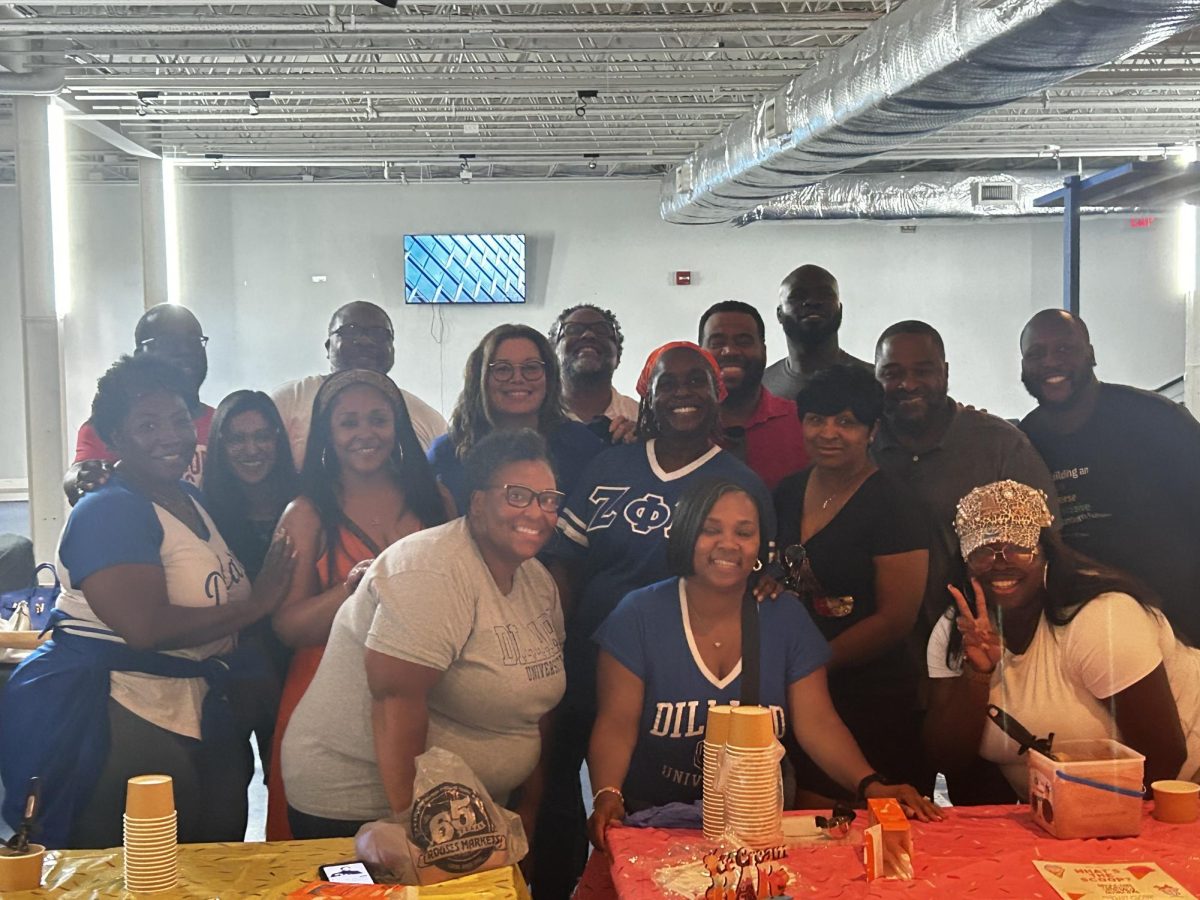NEW ORLEANS (April 11, 2013)-For the first class of Brazilians in a special program at Dillard, adjusting to New Orleans has been a breeze, according to one student.
“New Orleans has a lot of similarities, like the Carnival, like Mardi Gras,” said Luiz Felipe Ribeiro Barbalat Queiroz of Rio de Janeiro, a geography major. “New Orleans people are very friendly, like Rio people, so it was easy to adjust.”
A new program on campus has brought the 12 Brazilians to Dillard, and a maximum of another 20 are expected in the fall, according to Aurea Diab, coordinator of the World Languages Department and assistant director of the Center for Intensive English Language.
Diab said the program, a partnership with the Brazilian government, Science without Borders and Brazil Scientific Mobility, is part of an effort to bring Afro-Brazilians to the United States for higher education. The Brazilian government pays their full tuition.
The students will spend six months improving their English language skills and then decide whether to remain at Dillard for additional classes or move to another historically black college that offers majors DU might not provide.
This semester, each one is taking an ESL course, and some have added a course in their major to audit or take for credit.
Diab said no Afro-Brazilians were in the first group because of bureaucratic difficulties as the program got started.
In addition to Barbalat Queiroz, the 11 students, their hometowns and majors are:
- Edgar Do Amaral Santos of Ouro Preto, Minas Gerais, Geological Engineering
- Daniel De Lima Alvarez of São Paulo, São Paulo, Agronomy / Agriculture
- Fabrico Caixeta Andriani of Feira de Santana, Bahia, Computer Engineering
- Eduardo Henrique De A. Ferreira Pereira of São Paulo, São Paulo, Civil Engineering
- Paulo Minor Inagaki Jr. of Rio de Janeiro, Rio de Janeiro, Production/Industrial Engineering
- Natalia Da Silva Moura of Goiânia, Goiás, Chemistry (Industrial)
- Paula Mota De Sa of São Paulo, São Paulo, Biology
- Bruna Aoki Gandur Khaled of São Paulo, São Paulo, Architecture and Urban Planning
- Ana Flavia Silva Pizzolio of Cuiabá, Mato Grosso, Social Communication / Journalism
- Mariana De Carvalho Barbosa of Belo Horizonte, Minas Gerais, Medicine
- Andreia Oliveira Fonseca of BrasÃlia, Distrito Federal, Agronomy / Agriculture.
Each Brazilian student has a Dillard student or faculty member as a mentor to help them in the area of cultural exchange.
De Carvalho Barbosa says her day is much like most other students; she has two classes, does homework and works out. Like her students, she also watches television, but for a different reason: I often watch English movies to help me learn the language.”
Diab said DU is awaiting word from the Institute of International Education on the number of new Brazilian students. However, housing limits the number Dillard can accept to a maximum of 20 Brazilian students per semester.
(Yasmenn Pittman contributed to this report.)

































